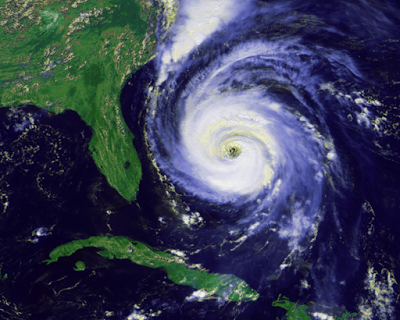Most Floridians are aware that all it takes is one storm to change your life and community. While we may not experience the earthquakes that rock the West Coast or tornadoes that blow through the Midwest, if you have lived in Florida your whole life or at least part of it, you know hurricanes are nothing to sneeze at. Unlike these other storms, fortunately, hurricanes can be tracked fairly early and easily making it much easier to take safe evacuation measures. Most Floridians know the drill when it comes to preparing their heart and home for Atlantic Hurricane Season, which tarts on June 1st. If, however, you are a new Florida resident or don’t know the best course of action in preparing for a hurricane, the National Oceanic and Atmospheric Administration (NOAA) encourages you to take part in Hurricane Preparedness Week, May 15-21, 2016. Hurricanes or tropical cyclones are among nature’s most powerful and destructive phenomena. Living in Florida, prone to tropical cyclones, you need to be prepared. Even areas that sit well away from the coastline can be threatened by flooding and powerful winds. Hurricane Preparedness Week is your time to best prepare for a tropical storm or hurricane that makes landfall. You can learn how with these tips. Share them tips with your friends and family to ensure that they are also prepared.
Step 1: Evaluate Your Risk & Insurance
Do you live on or near the water? Do you have proper flood or property insurance? How about boat insurance? These are all things to consider when preparing for Hurricane Season. It’s better to have all of your ducks in a row beforehand than to be surprised later on when you find yourself the victim of storm damage. Know your coverage and keep your documents in a water-tight bag.
Step 2: Know You Evacuation Routes
It’s a good idea to map out an evacuation route during this preparatory time. Know your roads and highways, then formulate an alternate plan, should those roads become closed or inaccessible. You should also make a note of any nearby shelters.
Step 3: Assemble Disaster Supplies
You are going to need supplies, if not for the storm, for the potentially long and unpleasant aftermath. It’s important to have enough non-perishable food, water, and medicine to last each person in your family a minimum of one week. You’ll need extra cash, a battery-powered radio and flashlights. Most of us have cell phones, so you’ll also need a portable, crank or solar-powered USB charger.
Step 4: Strengthen Your Home
If you intend to wait out the storm in your home, make sure it is in good shape and up to par with your local hurricane building code specifications. Have the proper plywood, steel or aluminum panels to board up the windows and doors. If you have a garage door, it is the most vulnerable part of the home. Properly board up and secure the garage door so it can withstand the winds.
If you were thinking of installing a fence, your best bet is an aluminum or vinyl fence from Best Fence Company of Jacksonville. Traditional wooden fences are highly susceptible to wind damage, falling down, losing panels or even becoming dangerous projectiles. Most aluminum and vinyl fencing is much more durable than wooden fencing, having passed high-speed wind testing and a 3000-hour salt water spray test.
Further Information More information on hurricanes and hurricane preparedness can be found at www.NOAA.gov or by contacting your local weather service or county officials.
Best Fence Company is Jacksonville’s industry leader in fabrication and installment of top quality vinyl and aluminum fencing and ornamental garden products. At Best Fence, our mission is to fabricate and install the highest quality product at a competitive price while providing unsurpassed Customer Service. Fencing is an investment in your
home. Your decorative fence design choice adds value to your property in a beautiful way. Your family will feel protected and you’ll breathe easier
knowing Best Fence installed your new fence. We provide professional FREE estimates at your convenience, call us today.

